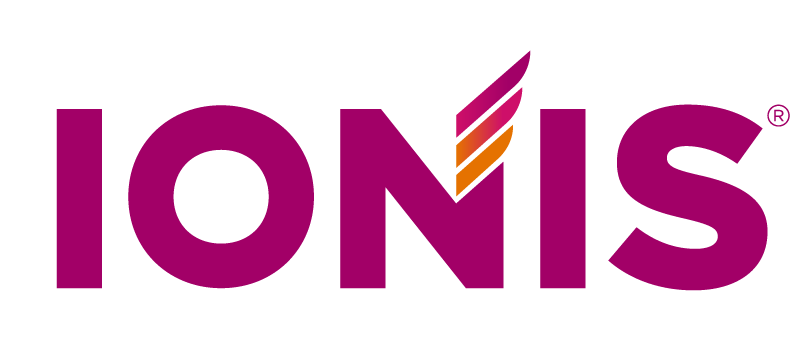Press Releases
Isis Pharmaceuticals Initiates Phase II Clinical Trial of ISIS 14803 in Patients with Hepatitis C
CARLSBAD, Calif., May 29 /PRNewswire-FirstCall/ -- Isis Pharmaceuticals, Inc. (Nasdaq: ISIS) announced today it has initiated a Phase II clinical trial to assess the benefit of adding ISIS 14803 to standard treatments for hepatitis C virus (HCV). In the study, ISIS 14803 will be administered to patients who do not achieve an early response to treatment with pegylated interferon and ribavirin. ISIS 14803, an antisense inhibitor of HCV viral replication, is also the subject of a Phase II study as a single agent for the treatment of HCV.
"We are enthusiastic about the potential of ISIS 14803 to enhance standard HCV treatments. In previous studies, ISIS 14803 produced significant viral level reductions in patients with Genotype 1, drug-resistant HCV, which is the most difficult to treat segment of the HCV patient population," said Mark Wedel, M.D., Vice President, Clinical Research and Chief Medical Officer. "New medical treatment options, or options that can enhance existing therapies, are needed in the HCV community. We are hopeful that ISIS 14803 may prove to be of great value in this disease."
The company plans to enroll approximately 30 people with Genotype 1, drug resistant HCV in the open-label, dose-escalation study. Along with conventional doses of pegylated interferon and ribavirin, patients will receive ISIS 14803 twice weekly for three months and be followed to determine whether sustained viral responses are achieved. The trial will also assess treatment safety.
This study was initiated to explore the activity of ISIS 14803 in combination with standard HCV treatments based on cumulative experience with the drug as a single agent. As reported in November 2002, an ongoing three-month Phase II clinical trial of ISIS 14803 demonstrated promising antiviral activity by producing up to 3.8 log reductions in plasma virus levels in patients with chronic HCV. In the trial, decreases in viral levels were accompanied by asymptomatic transient increases in ALT levels. The elevated ALT levels resolved while dosing with ISIS 14803 continued. In an initial one-month Phase I/II study of the antisense drug, patients experienced 1.3-2.2 log reductions in viral levels after treatment with ISIS 14803. In this study, reductions in viral levels were maintained for more than 40 days post-treatment. Adverse events observed in this study were considered minor.
According to the National Institute of Diabetes, Digestive and Kidney Diseases (NIDDK), HCV is one of the most important causes of chronic liver disease in the U.S. It accounts for approximately 15 percent of acute viral hepatitis, 60 to 70 percent of chronic hepatitis, and 50 percent of cirrhosis, end-stage liver disease, and liver cancer. Nearly four million Americans, or 1.8 percent of the U.S. population, have antibody to HCV (anti-HCV), indicating ongoing or previous infection with the virus. There are at least six major Genotypes and more than 50 subtypes of HCV. Genotypes 1a and 1b are the most common in the U.S. Genotypes 2 and 3 are present in approximately 30 percent of patients. However, patients with Genotypes 2 and 3 are more likely to respond to interferon-based therapies. HCV causes an estimated 10,000 to 12,000 deaths annually in the U.S.
Isis Pharmaceuticals, Inc. is exploiting its expertise in RNA to discover and develop novel human therapeutic drugs. The company has commercialized its first product, Vitravene® (fomivirsen), to treat CMV-induced retinitis in AIDS patients. In addition, Isis has 13 antisense products in its development pipeline, with two in late-stage development and five in Phase II human clinical trials. Affinitak™ (formerly called LY900003 and ISIS 3521), an inhibitor of PKC-alpha, is in Phase III development for non-small cell lung cancer, and alicaforsen (ISIS 2302), an ICAM-1 inhibitor, is in Phase III human clinical trials for Crohn's disease. Isis has a broad patent estate, as the owner or exclusive licensee of more than 1,200 issued patents worldwide. Isis' GeneTrove™ division uses antisense to assist pharmaceutical industry partners in validating and prioritizing potential gene targets through customized services. Ibis Therapeutics™ is a division focused on the diagnosis of infectious organisms and the discovery of small molecule drugs that bind to RNA. Additional information about Isis is available at www.isispharm.com .
This press release contains forward-looking statements about the potential of the investigational compound ISIS 14803 in the treatment of hepatitis C and the potential of Isis' drug development programs. Any statement describing a goal, expectation, intention or belief of the company is a forward-looking statement and should be considered an at-risk statement. Such statements are subject to certain risks and uncertainties, particularly those inherent in the process of discovering, developing and commercializing drugs that are safe and effective for use as human therapeutics and financing such activities. Actual results could differ materially from those projected in this release. As a result, you are cautioned not to rely on these forward-looking statements. These and other risks concerning Isis' research and development programs are described in additional detail on Form 10-Q for the period ended March 31, 2003, which is on file with the U.S. Securities and Exchange Commission, copies of which are available from the company.
Vitravene® is a registered trademark of Novartis AG. GeneTrove™ and Ibis Therapeutics™ are trademarks of Isis Pharmaceuticals, Inc. Affinitak™, a trademark of Eli Lilly and Company, is an investigational cancer compound being developed through an alliance between Lilly and Isis Pharmaceuticals, Inc. and marketed globally by Lilly.
SOURCE Isis Pharmaceuticals, Inc.
